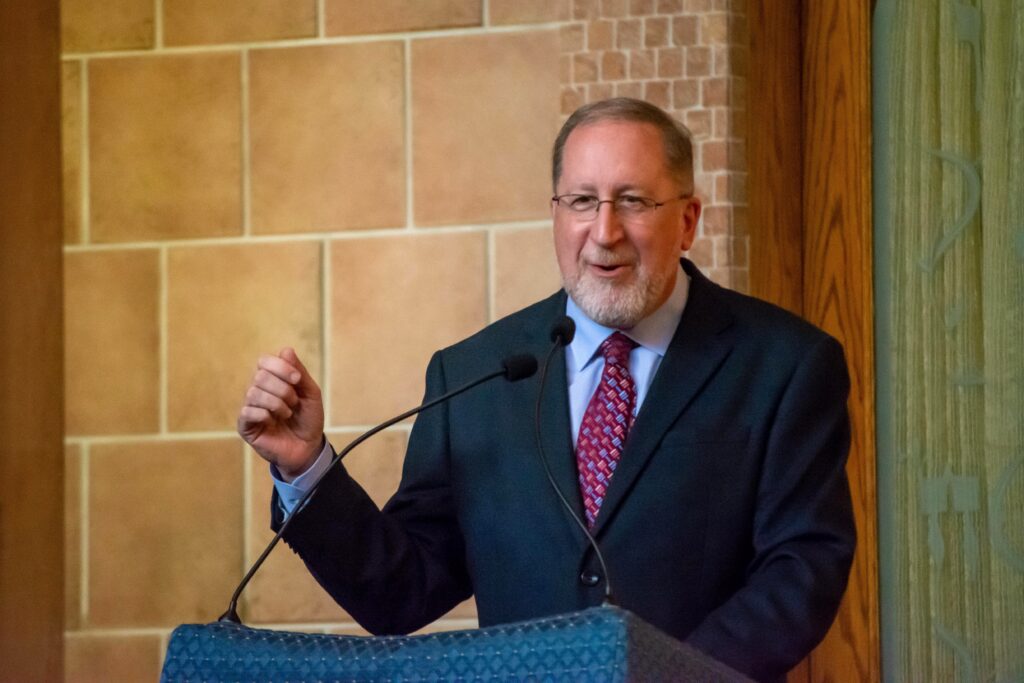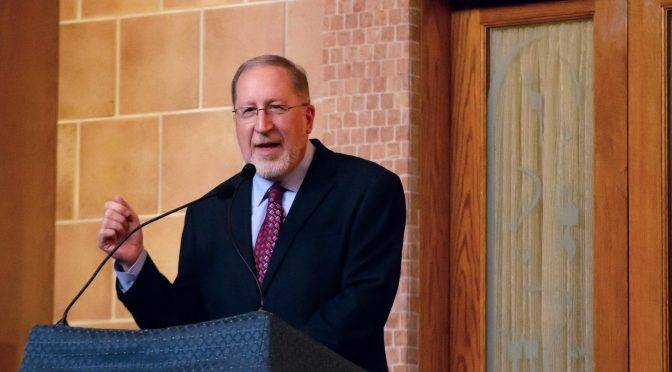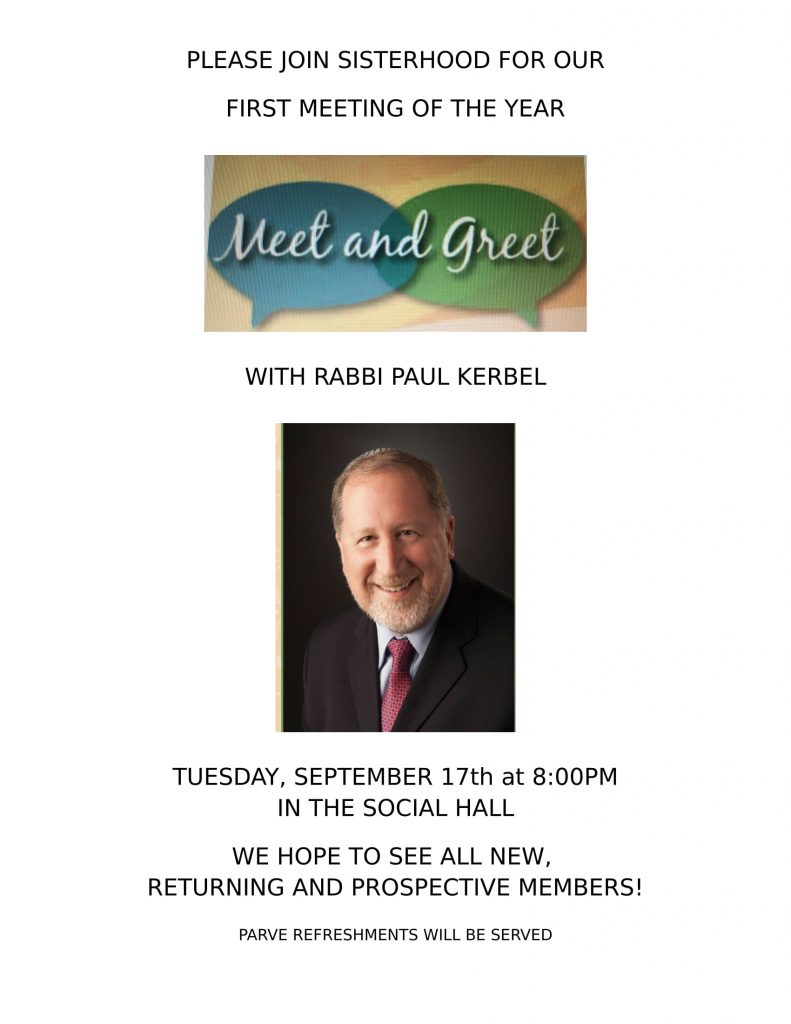Rabbi Paul David Kerbel joined Temple Beth-El Mekor Chayim in 2019, bringing a wealth of experience and practice to our shul from his years serving congregations large and small, both as a senior rabbi and associate rabbi during his career.

Born in Philadelphia, Rabbi Kerbel was raised in New Orleans, Louisiana, Rochester, New York and Hollywood, Florida. Rabbi Kerbel’s father Bob served as a Jewish communal professional in these communities, and his mother Ruth as an active lay leader in the communities and synagogues in which they lived. His parents imbued in him the importance of interweaving commitment to the synagogue, community and Israel.
Rabbi Kerbel was ordained by the Jewish Theological Seminary of America in 1985, receiving the Isaac H. Wolfson Award for Dedicated Service to JTS during his four years of undergraduate and five years of rabbinical school experience at JTS. He was awarded a Doctor of Divinity degree in 2011 for dedicated service to the American Jewish community.
During the pandemic, Melissa Kerbel created Kerbel Philanthropy and serves as a fundraising and development consultant, coach, and advisor to a number of Jewish and non-Jewish non-profit organizations and cultural arts programs. Melissa is also a partner of Amplify Partners, a Jewish non-profit consulting company, advising clients in the United States and Israel.
When not at TBEMC, Rabbi and Melissa can be found spending time with their children and grandchildren in New York City, visiting museums, attending classical music concerts, and hanging out either at the beach or in the Berkshire Mountains of Western Massachusetts.
Rabbi Kerbel is a lifelong volunteer both in the rabbinic world and the larger Jewish and general communities. He currently serves as chair of the Cranford Clergy Association, is a member of the Israel Allocations and Israel Partnership Committees of the Jewish Federation of MetroWest New Jersey, and serves as co-chair of the Rabbinic Advisory Committee of the New York/New Jersey Region of the Anti-Defamation League.
In the Conservative Movement, Rabbi Kerbel serves on the Social Justice Commission focusing on hunger, poverty, and food insecurity and on the Derech Eretz Committee to help rabbis navigate appropriate ways to discuss and debate difficult problems facing our Jewish world and the political and cultural issues we debate as American citizens. Finally, he serves as an advisor to The Schechter Institutes, Israel’s premier pluralistic academic institution training rabbis and Jewish educators for the Masorti/Conservative Movement in Israel and around the Jewish world.
Rabbi Kerbel’s door is always open to meet with our members and those seeking to become part of the Jewish people. He loves connecting our members and congregation with the larger Jewish world helping each person create meaningful Jewish experiences.


